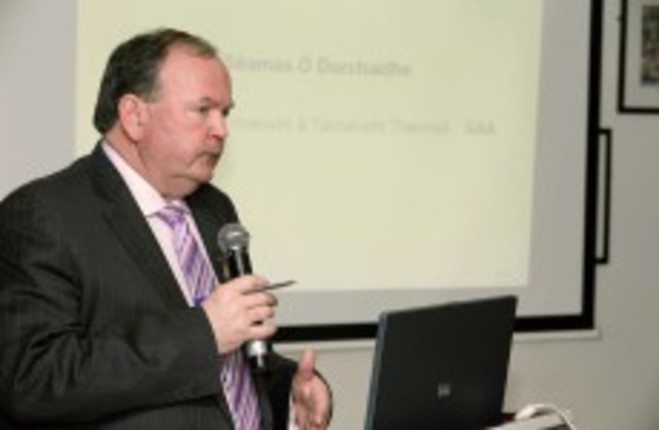GAA PRESIDENT LIAM O’Neill has renewed his support for reforms to crack down on abuse at matches.
O’Neill’s pledge follows a move by Wexford footballer Lee Chin who has called on authorities to take a hardline stance and impose tougher sanctions in cases of racial abuse.
The issue came to prominence earlier this year when Chin was at the centre of a high-profile case in which two Duffry Rovers players were alleged to have racially abused him and subsequently suspended for eight weeks.
Speaking yesterday, O’Neill said that the Association’s focus should be on stamping out all kinds of abuse.
“Any abuse is abhorrent. Any abuse is serious. The penalties for abuse range from eight weeks to expulsion from the organisation depending on the severity of it, so that’s in our rulebook as it is.
But I don’t want this debate down to any little boxes. This is about abuse. There’s no acceptable level of abuse and in my own GAA career so far, I have taken action on that and applied the rules at various levels. I would support anything that tightens it up.Any forms of abuse that make any person involved in our games feel less happy about being involved is abhorrent and I certainly would have no toleration for that at any level. So if there is a motion coming through to outlaw abuse of any sort I would be delighted to support it. I always have and always will.
O’Neill also highlighted the need to tackle over-zealous coaching at underage levels and said he would like to follow the lead of other sports which have experimented by playing juvenile games in silence.
“At the Féiles, I told the coaches that I didn’t want any child shouted at for not having a skill that that same coach didn’t teach him or her in the first place. That’s what happens when you shout at children from the side lines.
“There is moves in other sports where some juvenile games are played in silence. I think that’s something I’d love to see us experiment with, where nobody would be spoken to. Let them play their game in silence.”
He added: “I think also it would be good if in team sports, probably a centre-forward or a centre-back or two midfielders, because they’re the ones who move around most, would only be allowed to speak to a referee during the game. Nobody else.
And that a referee would be happy to explain afterwards what the decisions were that he made. I think that would cut down on the abuse.Referees are still being questioned on the field and they shouldn’t be. Once a decision is made, it’s made.

